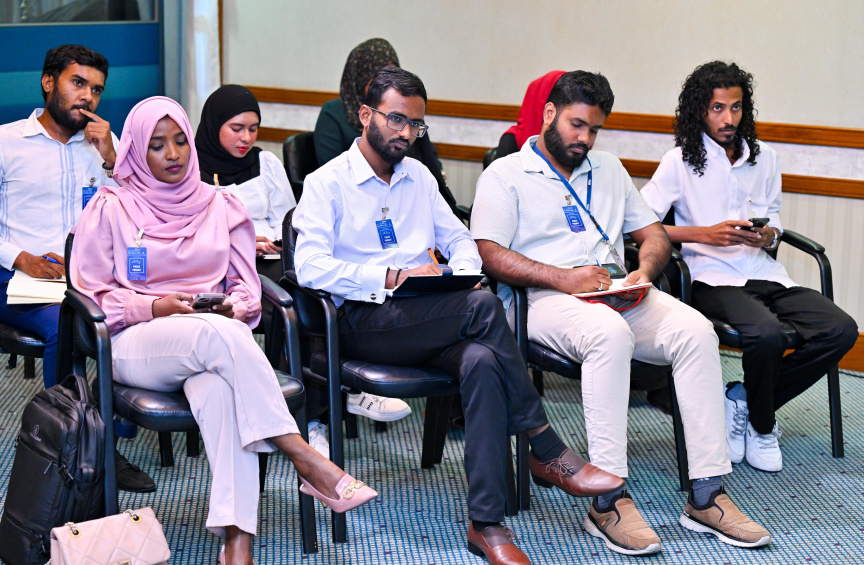
Journalists attend a press briefing at the President's Office on September 17, 2024. (Photo/President's Office)
The Maldives Broadcasting Commission (BroadCom) on Sunday publicized a new policy for accreditation of journalists who work in the broadcasting field.
According to BroadCom, the purpose of the new policy, which was published on the Government Gazette on Sunday, is to ensure journalists who work in broadcasting have the necessary training.
As such, the policy covers standards for education and experience, issuance of press passes, and a registry for journalists in broadcasting. It also makes it mandatory for journalists to be registered in order for TV stations to be issued licenses.
Under the new policy, press passes will be issued to:
Journalists must have a Maldives Qualification Authority (MQA) Level 3 certificate in broadcasting and communication or a related field, or minimum three years of experience in journalism, and a clean record for criminal convictions for at least five years in order to be eligible for accreditation.
They must also complete a special training by BroadCom which will cover; broadcasting code of practice, broadcasting guideline on protection of the rights of children and women, guideline on coverage of natural disasters and other tragedies, guideline on coverage of protests and other such incidents, and guideline on broadcasting political content during elections.
According to BroadCom, participants will be charged a fee of MVR 100 for the training.
Accredited press passes will be valid for five years, and journalists will be required to apply for renewal at least 30 days before it is set to expire.
The commission is empowered to suspend press passes if journalists are found to have violated the code of practice or code of conduct.
Meanwhile, press passes will be revoked if a journalist is convicted of a crime, or fails to rectify something despite repeated instructions by the commission.
According to BroadCom, the policy was drafted and published on its website in 2024. The commission also added that the lack of an accredited press pass does not present journalists from working in the media field.